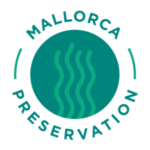Organic production: the sustainable pathway
Organic production represents a sustainable approach to agriculture, one that honours the environment through the nurturing of soil fertility, eschewing pesticides, and minimising ecological impact. This method, known as agro-ecology, has witnessed a robust growth over the years. In 2022, the expanse dedicated to eco-friendly cultivation swelled by nearly 10% compared to 2020.
On the island of Mallorca, the expansion of land under organic stewardship is proceeding at an impressive pace, signalling a significant shift in agricultural practices. The Consell Balear de la Producció Agrària Ecològica recorded an increase from 30,640 hectares in 2020 to 33,629 hectares in 2022, an upsurge close to 10%. Recognising the pivotal role of agroecology, the Mallorca Sustainability Observatory — an initiative spearheaded by Mallorca Preservation with the backing of Banca March — is monitoring a suite of indicators to gauge the progression of this vital transition in land management. As of 2022, organic farming accounted for 17.5% of Mallorca’s usable agricultural area (UAA), a figure that is on an upward trajectory, mirroring the island’s deepening dedication to environmental sustainability. This commitment is also in alignment with European targets, which aim for a 25% organic production quota by 2030.
Moreover, the organic sector has seen an 11% rise in the total number of operators since 2021. Organic farming practices have been shown to reduce carbon footprints by 20% when juxtaposed with conventional methods. These statistics herald a positive stride towards a more sustainable and ecologically considerate model of agriculture in Mallorca.

